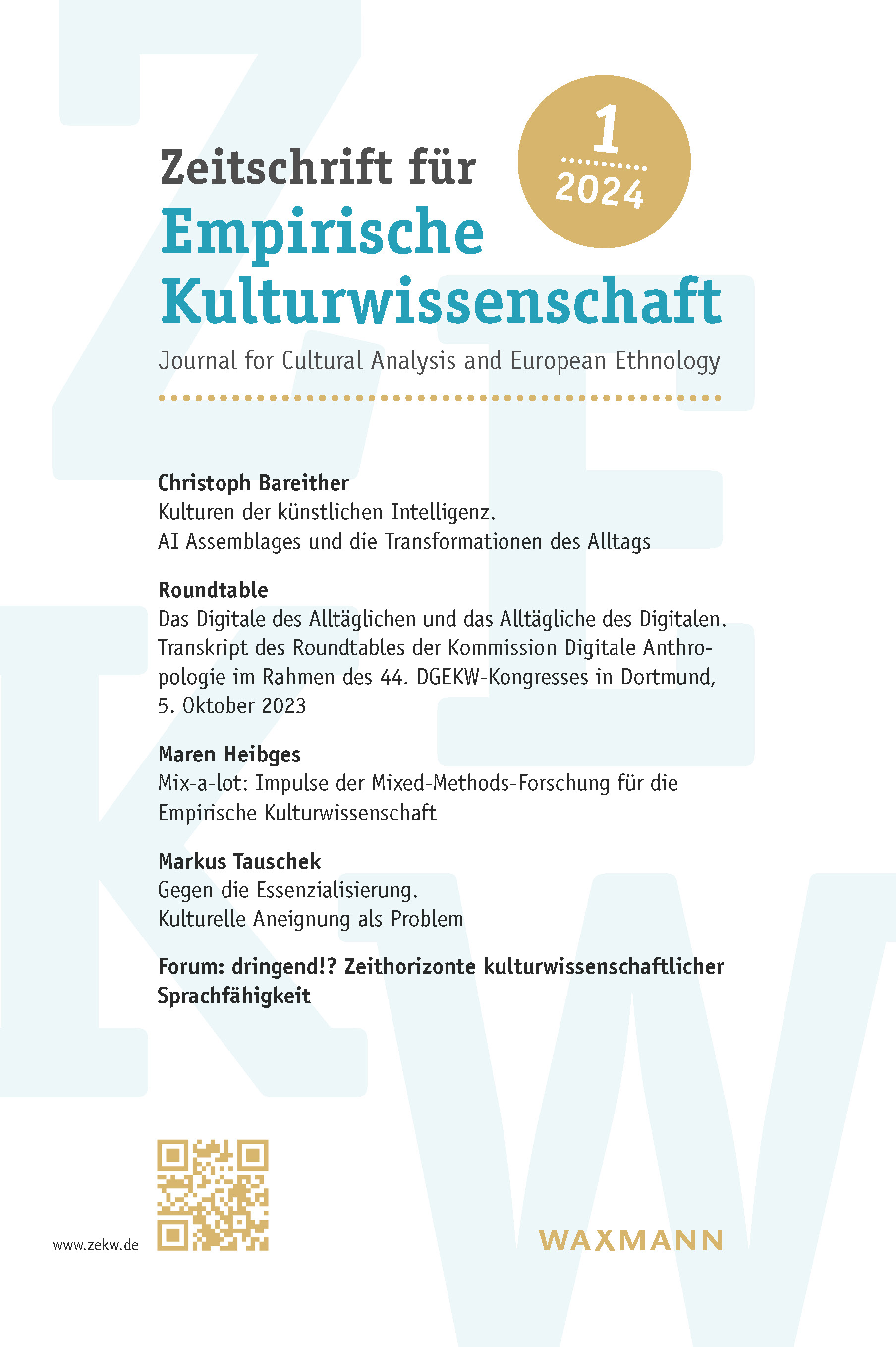Abstract
For some years now, certain cultural forms of expression as well as certain practices, artefacts or phenomena have been problematized and scandalized as cultural appropriation. The central thesis of this contribution is that the accusation of cultural appropriation is based on essentializing and therefore problematic concepts of culture. This accusation assumes that the phenomena or things labelled with the concept of cultural appropriation belong exclusively to certain groups of actors, whereas others use them in an illegitimate manner. The article focuses on the question of how new forms of (re)essentialization of culture are mobilized and how categorical boundaries are drawn in processes of ‘othering’ between a homogenized ‘we’ and clearly separated and equally homogenized ‘others’, based on the argument of a supposed cultural differ?ence. Cultural appropriation is deconstructed as a powerful slogan concept. The article analyzes not only the social discourses on cultural appropriation, but also the academic discourse that sometimes confirms or legitimizes the accusation of cultural appropriation. Overarching, the article discusses the question of how culture is instrumentalized today as a category of difference and how sovereignty of interpretation is articulated with regard to the mechanisms of cultural (re-)production and transmission.

This work is licensed under a Creative Commons Attribution 4.0 International License.
Copyright (c) 2024 Zeitschrift für Volkskunde

